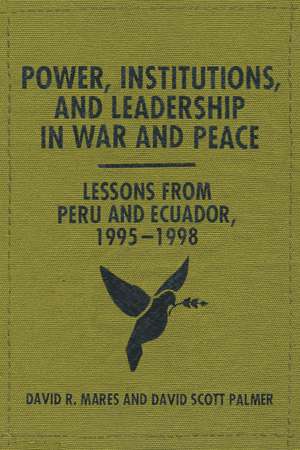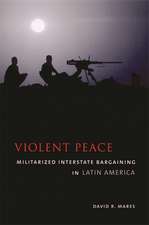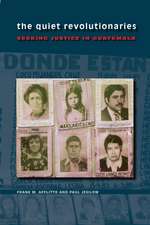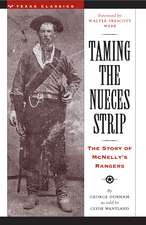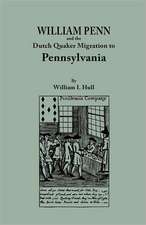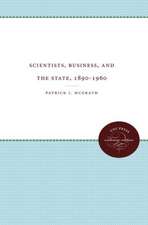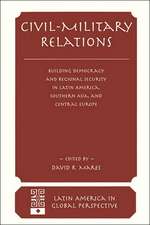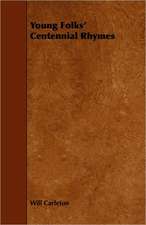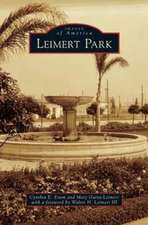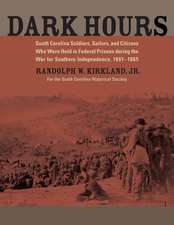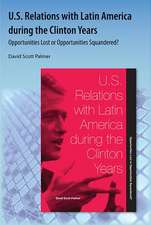Power, Institutions, and Leadership in War and Peace: Lessons from Peru and Ecuador, 1995–1998
Autor David R. Mares, David Scott Palmeren Limba Engleză Paperback – iun 2012
Drawing on extensive field research at the time of the dispute and during its aftermath, including interviews with high-ranking diplomats and military officials, Power, Institutions, and Leadership in War and Peace is the first book-length study to relate this complex border dispute and its resolution to broader theories of conflict. The findings emphasize an emerging leadership approach in which individuals are not mere captives of power and institutions. In addition, the authors illuminate an overlap in national and international arenas in shaping effective articulation, perception, and selection of policy.
In the “new” democratic Latin America that emerged in the late 1970s through the early 1990s, historical memory remains influential in shaping the context of disputes, in spite of presumed U.S. post–Cold War influence. This study offers important, broader perspectives on a hemisphere still rife with boundary disputes as a rising number of people and products (including arms) pass through these borderlands.
Preț: 156.84 lei
Nou
Puncte Express: 235
Preț estimativ în valută:
30.01€ • 31.40$ • 24.93£
30.01€ • 31.40$ • 24.93£
Carte tipărită la comandă
Livrare economică 03-17 aprilie
Preluare comenzi: 021 569.72.76
Specificații
ISBN-13: 9780292754294
ISBN-10: 0292754299
Pagini: 200
Ilustrații: 5 maps, 10 tables
Dimensiuni: 152 x 229 x 13 mm
Greutate: 0.23 kg
Editura: University of Texas Press
Colecția University of Texas Press
ISBN-10: 0292754299
Pagini: 200
Ilustrații: 5 maps, 10 tables
Dimensiuni: 152 x 229 x 13 mm
Greutate: 0.23 kg
Editura: University of Texas Press
Colecția University of Texas Press
Notă biografică
David R. Mares is Professor of Political Science at the University of California, San Diego, where he also serves as Institute of the Americas Chair for Inter-American Affairs and is Director of the Center for Iberian and Latin American Studies. His previous books include Drug Wars and Coffeehouses: The Political Economy of Drug Policy, Violent Peace: Militarized Interstate Bargaining in Latin America, and The United States and Chile: Coming in from the Cold with Francisco Rojas Aravena.
David Scott Palmer is Professor of International Relations and of Political Science at Boston University, where he is also Founding Director of the Latin American Studies Program. His previous books include U.S. Relations with Latin America during the Clinton Years, Shining Path of Peru (ed.), and Peru: The Authoritarian Tradition.
David Scott Palmer is Professor of International Relations and of Political Science at Boston University, where he is also Founding Director of the Latin American Studies Program. His previous books include U.S. Relations with Latin America during the Clinton Years, Shining Path of Peru (ed.), and Peru: The Authoritarian Tradition.
Cuprins
- Preface
- Chapter 1. Introduction: Explaining Interstate Conflict and Boundary Disputes in Post–Cold War Latin America
- Chapter 2. Two Nations in Conflict
- Chapter 3. Presidential Decision Making: The Institutional and Personal Context
- Chapter 4. Domestic Politics and the Push toward War
- Chapter 5. The Domestic Bases for Resolution
- Chapter 6. Hemispheric Diplomacy and the Politics of a Solution
- Chapter 7. Conclusions: Lessons Learned, Progress Achieved, and Implications for Other Boundary Disputes
- Appendix A. Effective Number of Parties
- Appendix B. Ecuadorean Attitudes toward Relations with Peru (November 1992)
- Appendix C. Polling Data on Border Issues (1994–1996)
- Notes
- Bibliography
- Index
Recenzii
The analysis of developments during the years 1995 to 1998 is especially masterful, artfully weaving together the many different strands. The book also benefits from the provision of some good maps and helpful chronologies…Mares and Palmer have undoubtedly written the most comprehensive work possible on the Ecuador Peru territorial settlement pending the future opening of the diplomatic archives of the key players.
Descriere
An examination of the border war between Peru and Ecuador reveals new approaches to Latin American leadership and a transformed power structure that integrates domestic and international factors.
